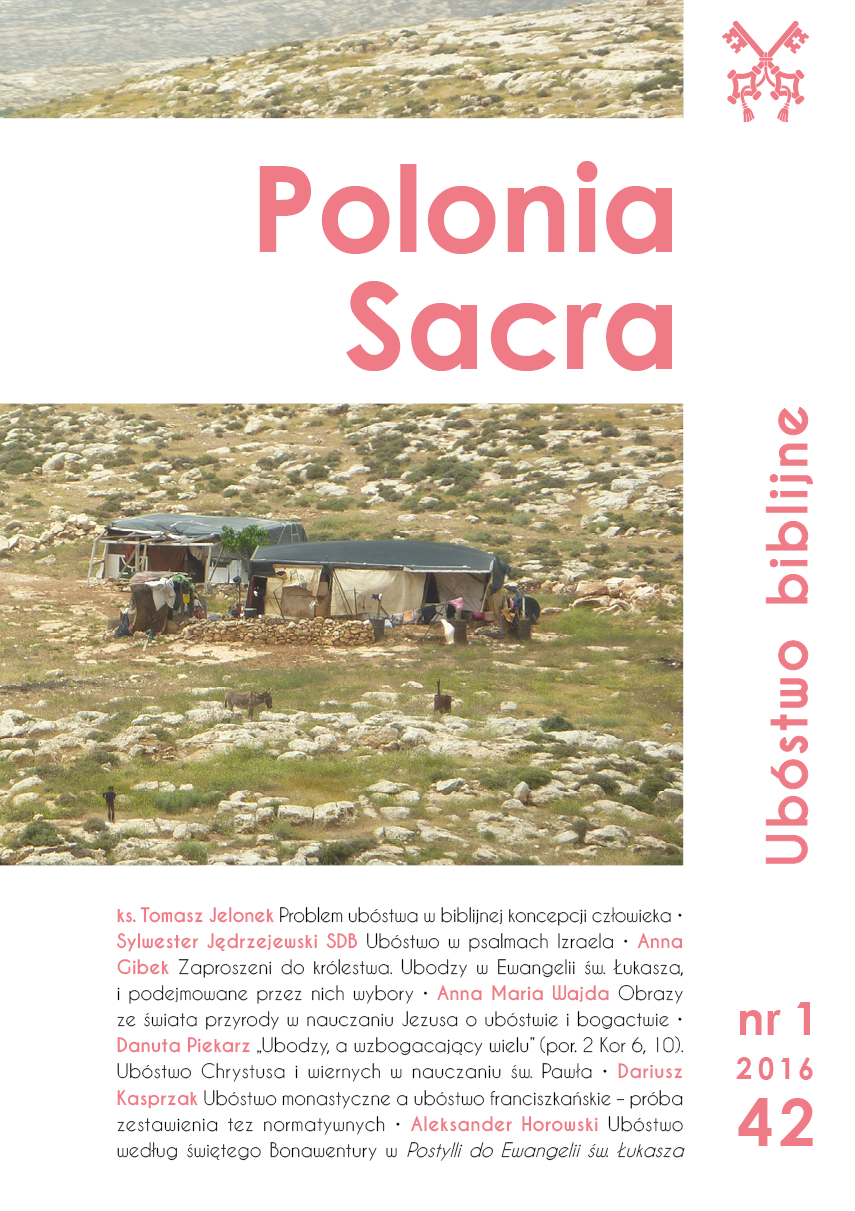Ubóstwo monastyczne a ubóstwo franciszkańskie – próba zestawienia tez normatywnych
Monastic Poverty and Franciscan Poverty – an Attempt to Juxtapose of the Normative Theses
Author(s): Dariusz KasprzakSubject(s): Christian Theology and Religion, Ancient World, 6th to 12th Centuries, 13th to 14th Centuries, Biblical studies, Sociology of Religion
Published by: Wydawnictwo Naukowe Uniwersytetu Papieskiego Jana Pawła II w Krakowie
Keywords: voluntary poverty; monasticism of IV–VII century; minoritism of the XIII century; normative theses;
Summary/Abstract: In this paper I focus on the leading ideas of voluntary poverty in patristic monasticism and in the Franciscan order of the times of St. Francis of Assisi. The analysis of normative theses of both orders, the patristic and the minorites traditions portray their convergence. According to 2 Corinthians 8:9 – humility of Jesus in his Incarnation formed the basis of monastic life for early monasticism and for minorites as well. Christ`s humility and poverty guided the spiritual life of monks of the early monasticism and Franciscan brothers. The voluntary poverty, rejection of the possession of private property, a life of “sine proprio” mean simply to consider life only as a time of pilgrimage to Heaven. The refusal of acceptance of money frees a monk from greed. Contemptus mundi i.e. contempt of the worldly concerns for the sake of God, and work as a biblical duty and necessity of life should constitute principles of the Christian existence first of all from, the eschatological point of view. The similitude of both (early monasticism and Franciscan monasticism) standards of the voluntary poverty seemed to proceed from the personal experience of the Bible of their founders. Both normative theses originated in the charismatic periods of both traditions. Both these norms were a practicable attempts of the Church to the evangelical sources.
Journal: Polonia Sacra
- Issue Year: 20/2016
- Issue No: 1
- Page Range: 59-79
- Page Count: 21
- Language: Polish

